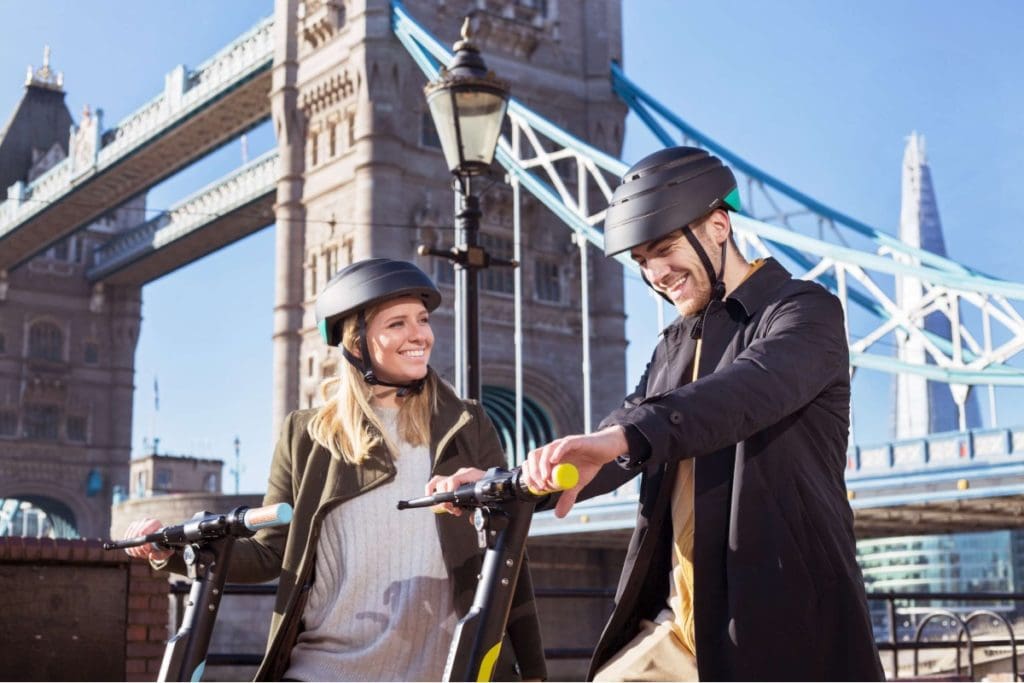London Doubles E-Scooter Trial – With Strict Requirements

London, UK
Scooter share companies are in competition for rights to operate in various cities around the world. But no licences are more coveted and more potentially lucrative than those of major cities that combine population density, scale, wealth and (post covid…) tourism, such as London, Paris and New York.
This gives those cities the leverage to impose additional requirements upon scooter-share operators, which is exactly what is happening in London right now. Their first e-scooter trial began on 7th June 2021 with the three successful operators chosen to be Dott, Lime and TIER.
Transport for London (TfL) and London Councils have recently expanded the size of their scooter trial fleet from 600 to 1,200 and added three more areas including the City of London itself.
Will Norman, London’s walking and cycling commissioner, said, “Extending the footprint of the trial to more areas will enable us to get a better understanding of the role e-scooters can play in switching car journeys to greener and more sustainable alternatives. Safety continues to be at the heart of our trial, with London’s more stringent safety standards also in place in the new large area.”
The rental e-scooters have a number of safety features including always-on lights, GPS-controlled parking and no-go zones – meaning they can only be parked in specified locations not obstructing the pavement and cannot be taken in certain areas, such as tunnels – and a unique identification number on every vehicle. The safety standards required in London go further than those set out at a national level, by requiring:
- Users to be 18+
- A lower maximum speed of 12.5 mph (21 kph), compared to the 15.5 mph (26 kph) set nationally
- Lights at the front and the rear of the vehicles that are always on throughout any rental
- Larger wheels at least 12 inches in diameter, meaning they can navigate road surfaces more easily.
- Vehicles to come to safe stop in a ‘no go’ area, and safely reduce speed to 8 mph (13 kph) in ‘go slow’ areas.
The operators also have additional safety mechanisms in place, including ‘first ride policies’, meaning riders must take an e-learning safety course before they hire for the first time, and lower maximum speeds in place for their first ride. TfL, London Councils and the operators also launched a safety and awareness campaign to promote the importance of safety during the trial.
TfL, London Councils and participating boroughs have actively engaged with people with accessibility needs throughout the development of the trial and will continue to do so during the trial, including with TfL’s Independent Disability Advisory Group. This includes proactively engaging with the blind and partially sighted community and encouraging each operator to work with the community to find an appropriate sound for e-scooters to alert people to their presence on the street.
TfL has installed a micromobility data-sharing platform that will allow for two-way data sharing with the operators and help with the day-to-day management of the trial. Each operator will communicate with its customers directly and the operator will be the first port of call for any issues related to e-scooter rentals during the trial.
A longer version of this article was first published on micromobilitybiz.com (UK)
